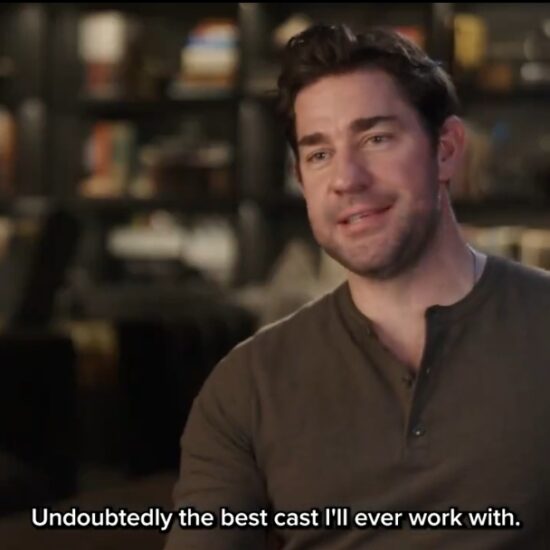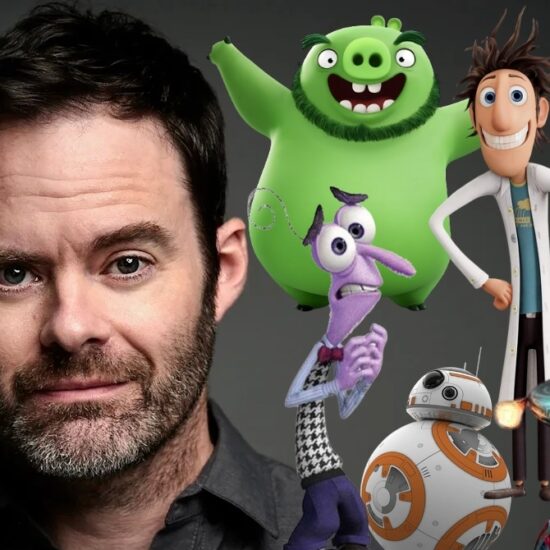
Dawn Porter and Nicole Newnham’s four-part docuseries “37 Words,” debuting June 21 on ESPN, celebrates the 50th anniversary of Title IX while also exploring the current struggle to maintain and evolve the 1972 law that forbids discrimination based on gender.
Prior to 1972, gender discrimination was commonplace in education and athletics. Physical activity for girls and women was cast as unfeminine, and while schools poured money and other resources into programs for male students, budding female athletes were left to fend for themselves. That all changed when Congress passed Title IX – a 37-word amendment — on June 23 that year.
“37 Words” marks the latest piece of programming in ESPN’s month-long “Fifty/50” initiative to commemorate the landmark federal civil-rights law prohibiting sex-based discrimination in any educational institution that receives federal funding. Billie Jean King, Mia Hamm, Ann Meyers Drysdale, Barack Obama and Gloria Steinem are among the bold-faced names in the docuseries. Porter executive produced it and directed two of the project’s four episodes, with Newnham directing the remaining episodes.
Porter spoke to Variety about the continued struggle to uphold Title IX and what can be done to make sure that the equality the law promises is fully realized.
Did you approach ESPN with this project, or did they come to you?
They came to me and when they did, I was so excited about it because (Title IX) is a civil rights law. Not a sports law. It’s not only about sports. I thought, if there is one thing that we can do with this series is we can tell people that this law is so much broader than that and it’s had such a big impact. ESPN was really pleased about that idea, and they were like, “Do not feel constrained by the sports of it all because it’s on ESPN.”
Why do you think people only think of sports when they think of Title IX?
Sports was where the law got the biggest pushback. Title IX is 37 words and it passed in 1972, but the regulations don’t come out until two years later. So, people didn’t really focus on, what does it mean to be equal in education until women started saying, this is not equal. But where some people thought that they would be most impacted was in sport programs. They feared that they would have to cut men’s programs to accommodate the women, so they started pushing back. The history of all laws is that they are worked out through their controversies. So if someone sues because it’s a sports issue, that’s what gets the most attention. And that’s what happened with Title IX.
You begin the series with Billie Jean King and Gloria Steinem greeting each other as they are getting ready to sit down for an interview. How did you decide on this scene to kick off the series?
The hardest thing always is to start a movie because the start has to frame the whole thing. I thought it would be great to have them together because during research for the project they both came up so many times. They agreed to be interviewed together and then we found out it was the first time they had done an interview together. Something that all documentary filmmakers know or should know is you just start rolling as soon as your people are ready. How they greeted each other and how they were so natural with each other, it just felt like this is the right way to start the series. They are entitled to take a little bit of a victory lap right now. They have been in the thick of so many fights and while we have many more fights to come, I think now they’re both in the position of inspiring people. Having them reflect back on all that they have seen — both good and bad — felt really important.
Why did you decide to include Barack Obama in the series?
Having President Obama in the film was important to all of us because the Obama administration really did make Title IX a focus. They really did work to make sure that the law was stable and strengthened so that it would continue on. Also, a thing that we saw in doing our research is that Title IX isn’t successful without men. It’s not just a story about women. It’s a story about people. It’s a story about equality. So, I don’t think it helps us in civil rights battles to not acknowledge all of the effort from all of the people. It takes both men, women, people who are non-binary, who believe in equality to row in the same direction to actually make some change happen.
The series points out that Betsy DeVos significantly weakened the regulations for Title IX enforcement during the Trump administration. For example, Title IX protects against sex harassment, but under the DeVos regulations, if that harassment or rape or any assault occurs off campus, it’s not protected under Title IX. What is being done to correct those regulations?
The DeVos regulations really were damaging to Title IX and it is so distressing that in modern times we have somebody who is a woman doing things that could limit the rights or ability of women to get justice. But, you know, people are entitled to their opinions. The thing that I focus on is that there are a lot of very vigilant people who are not going to stand by and let the law be attacked. And this is a case where people who are interested in real equality do actually have some power. There are some other civil rights battles that unfortunately are not in that same situation.
The fourth episode of the series, “The Next Frontier” focuses on young trans girls rights and the consequences of a culture war that has called into question the entire framework of Title IX. It seems like the law is in real jeopardy. No?
The beauty of Title IX is that it’s only limited by the imagination of the advocates. The premise is so simple and clear and strong that what is left for those of us who care about equality is to ask the question: What does equality mean? We need to keep asking this question. The story of the trans kids is still to be written. There’s really discriminatory efforts being made. I think what it underscored for us in a very sober way is that we have to be vigilant. You can’t assume that because a right has been secured in a moment in time that it will stay that way. And so, we all need to continue to make sure to preserve the laws that we support. And that, as we all know, is being played out in a number of ways.
The first two parts of “37 Words” debut June 21 on ESPN. Parts three and four of “37 Words” will air on June 28.













